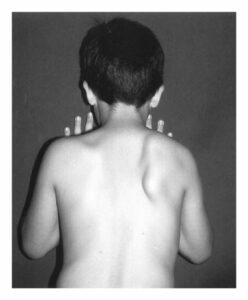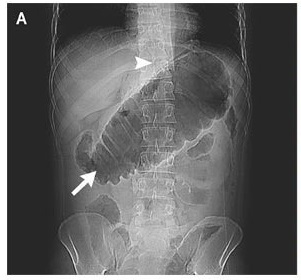This article is an answer to the Case – Pruritic, Umbilicated, Erythematous Vesicles with Erosion and Crusting
Her parents reported that eczematous lesions had previously occurred in these locations. The patient was afebrile, and no lymphadenopathy was present.
A vesicle was unroofed, and cytologic analysis of the fluid revealed giant, ballooned keratinocytes that were consistent with herpes virus infection. A direct fluorescent antibody test was positive for herpes simplex virus (HSV) type 1.
The patient received a diagnosis of eczema herpeticum, an eruption of a viral infection on a preexisting site of skin disease — typically, atopic dermatitis. Eczema herpeticum is most commonly caused by HSV.
The differential diagnosis includes:
- impetigo
- bullous impetigo
- scabies
- eczema vaccinatum
- primary varicella infection.
- bacterial superinfection
Eczema herpeticum can be severe and in some cases life-threatening. Early diagnosis and systemic antiviral treatment can minimize complications. The patient was treated with acyclovir, and the lesions healed completely after 3 weeks.


